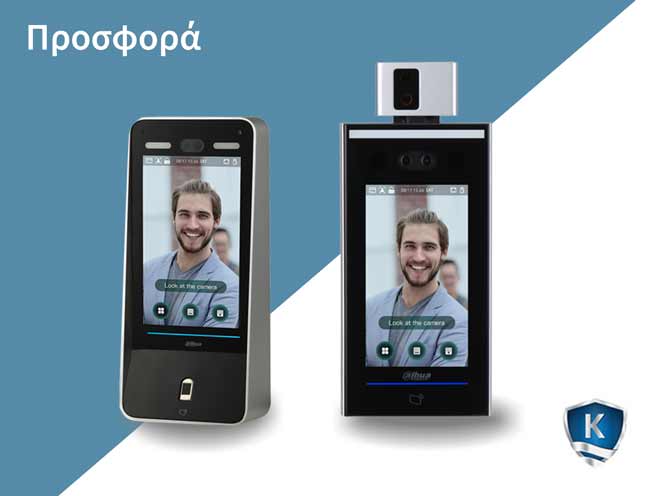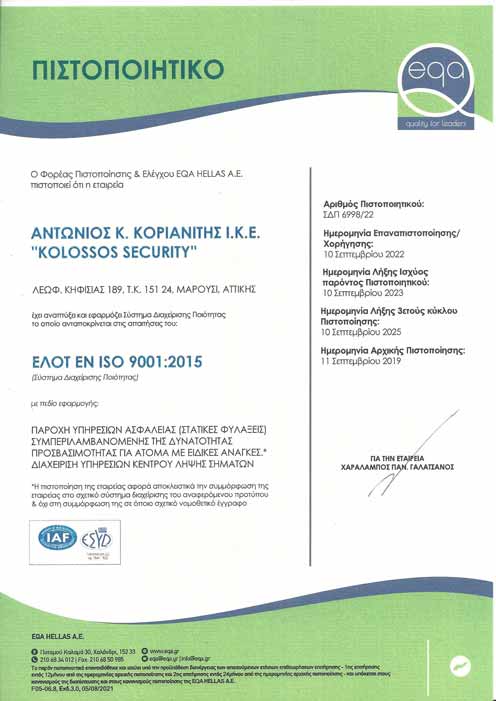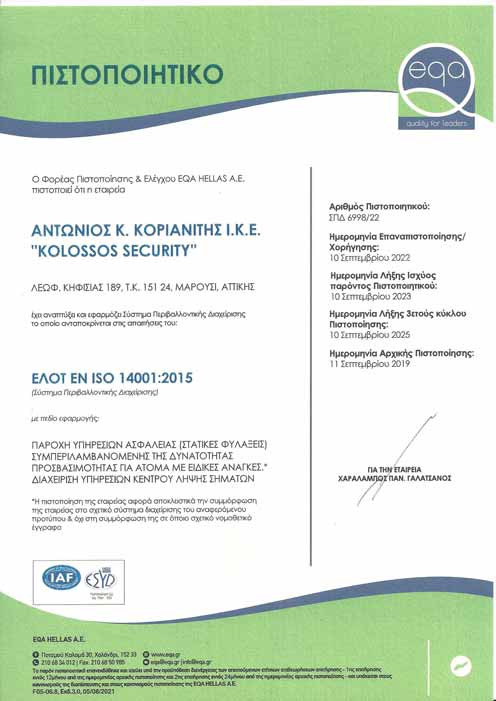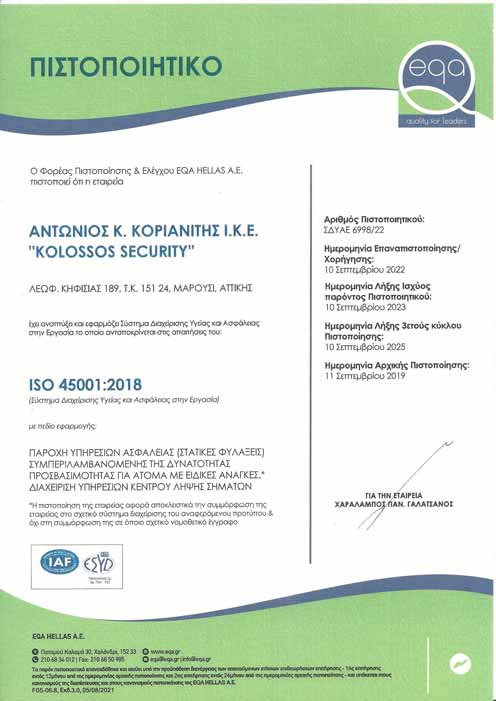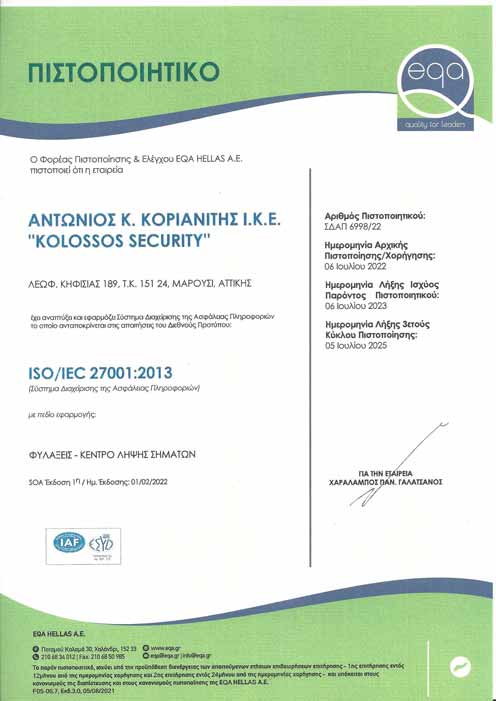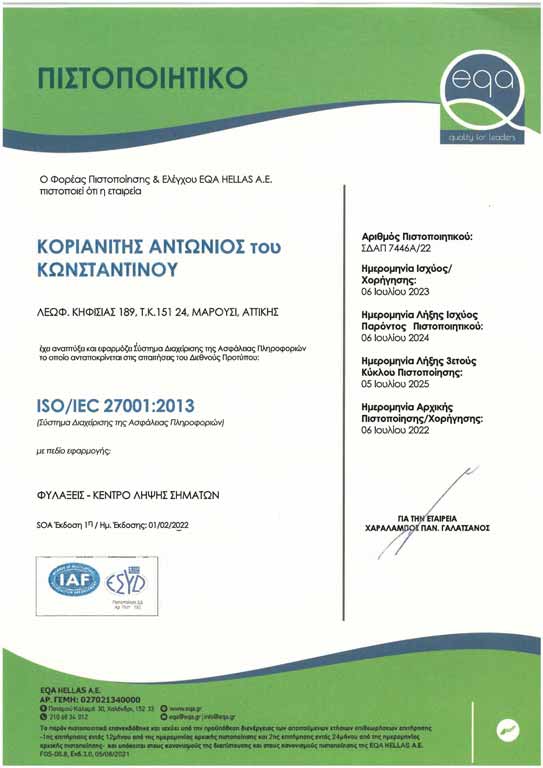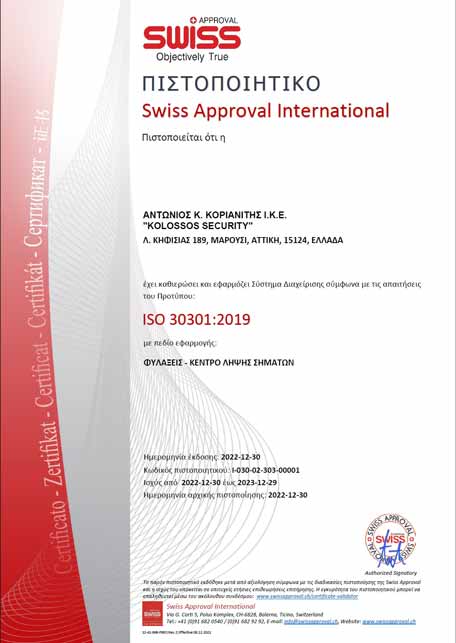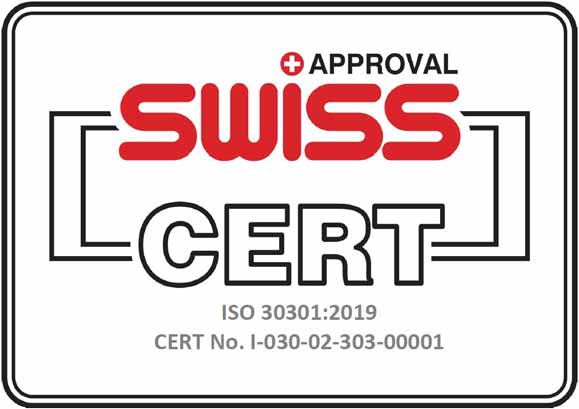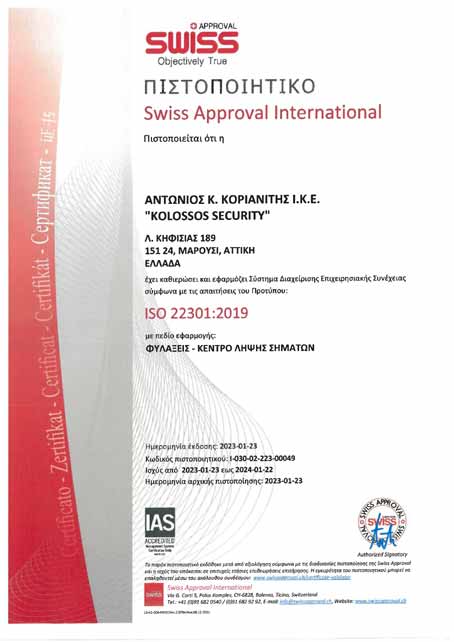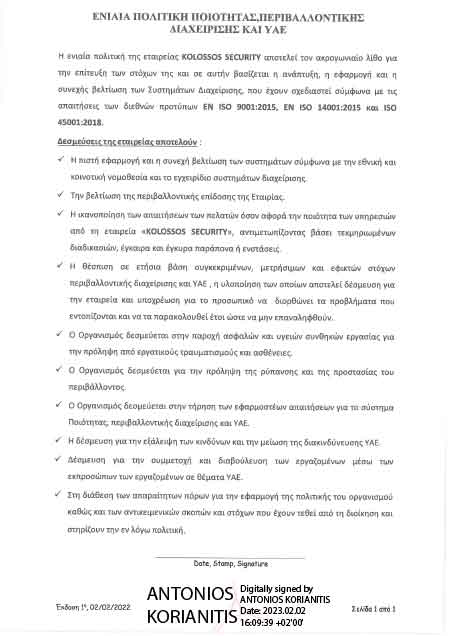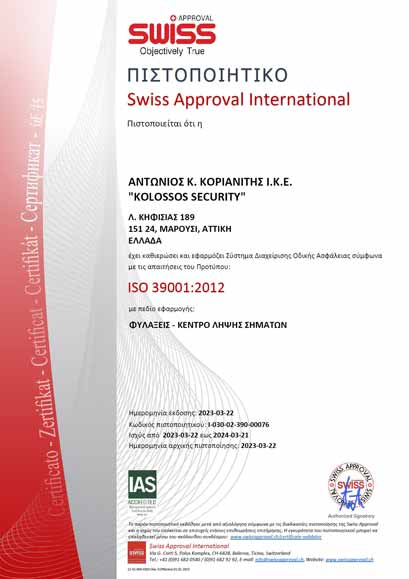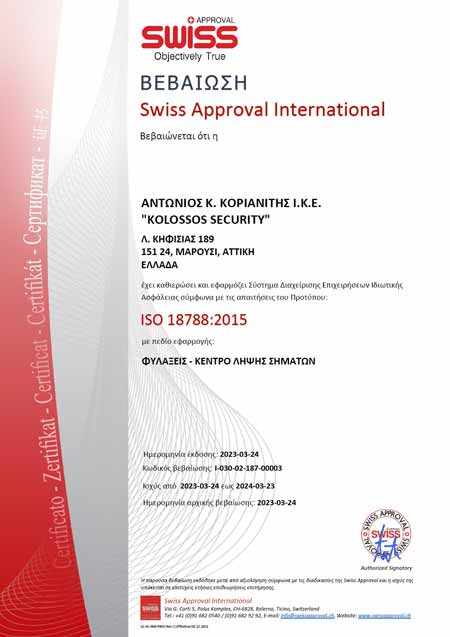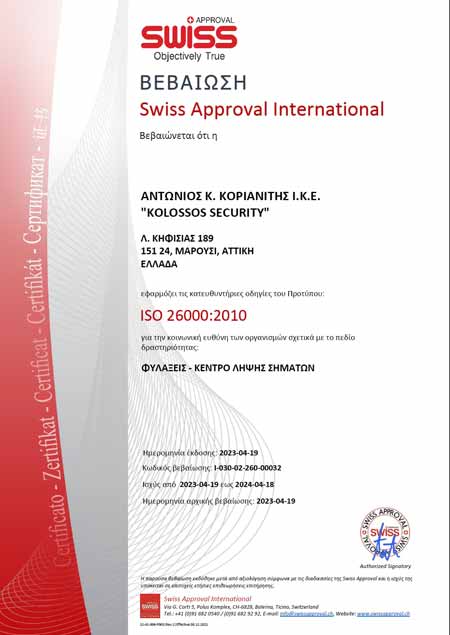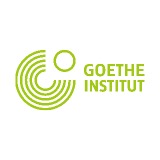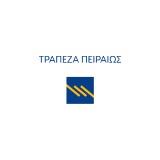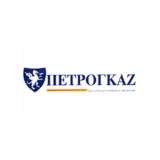ISO 26000:2010 Social Responsibility Management System
ISO 26000 is based on the concept of Corporate Social Responsibility (CSR) and provides the framework to support businesses in implementing its principles, with relevant actions, initiatives and best practices. It can be applied by any organization or business, of any size, in the public or private sector and in any industry.
ISO 26000 is a CSR implementation guide, covering all axes of ethics, principles of sustainability and governance, the environment and consultation with the local community. It provides principles and guidelines rather than required criteria. The subject matter of ISO 26000 includes 7 main pillars, which are:
- Governance
- Human Rights
- Business Practices
- Environment
- Fair/Proper Operating Practices
- Consumer Issues
- Participation and development of local communities
The main benefits of a company from the implementation of a Social Responsibility Management System according to the guidelines of ISO 26000:2010 are the following:
- Governance
- Human Rights
- Business Practices
- Environment
- Fair/Proper Operating Practices
- Consumer Issues
- Participation and development of local communities
ISO 26000 is a global standard for corporate social responsibility (CSR). The standard recognizes that businesses have responsibility for the impact they have on the environment and society. It also recognizes that corporate social responsibility is an important element of business sustainability and success in the long term.
The ISO 26000 standard provides a platform for developing and implementing a corporate social responsibility strategy. The implementation of the ISO 26000 standard helps companies understand the risks and impacts of their business activities on society and the environment, and develop strategies to address these risks and impacts.
Το πρότυπο ISO 26000 παρέχει επίσης κατευθυντήριες αρχές για την ανάπτυξη των επιχειρηματικών πρακτικών κοινωνικής ευθύνης, καθώς και για την αναφορά των επιχειρήσεων σχετικά με τις δραστηριότητές τους στον τομέα αυτό.
By implementing the ISO 26000 standard, companies can improve their communication with their customers and suppliers, while at the same time they can establish their prestige in the market. The standard can also help businesses attract and retain the best workers, as workers tend to choose employers who take into account their social role and impact on the environment.
In addition, the implementation of the ISO 26000 standard helps companies meet the legal obligations and regulations that govern their activities, as well as the expectations of society for corporate social responsibility.
Finally, the application of the ISO 26000 standard helps to promote sustainable development and create a better society, as it encourages businesses to take into account the factors and future risks that may arise from their activities, contributing to the protection of the environment and improving people’s quality of life.
Overall, the ISO 26000 standard provides a unified approach to corporate social responsibility that helps businesses develop best practices to improve social and their environmental performance. The implementation of the ISO 26000 standard, in conclusion, is an important step for the integration of social responsibility in the business policy and in their approach in relation to the environment and society.


